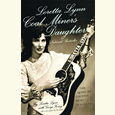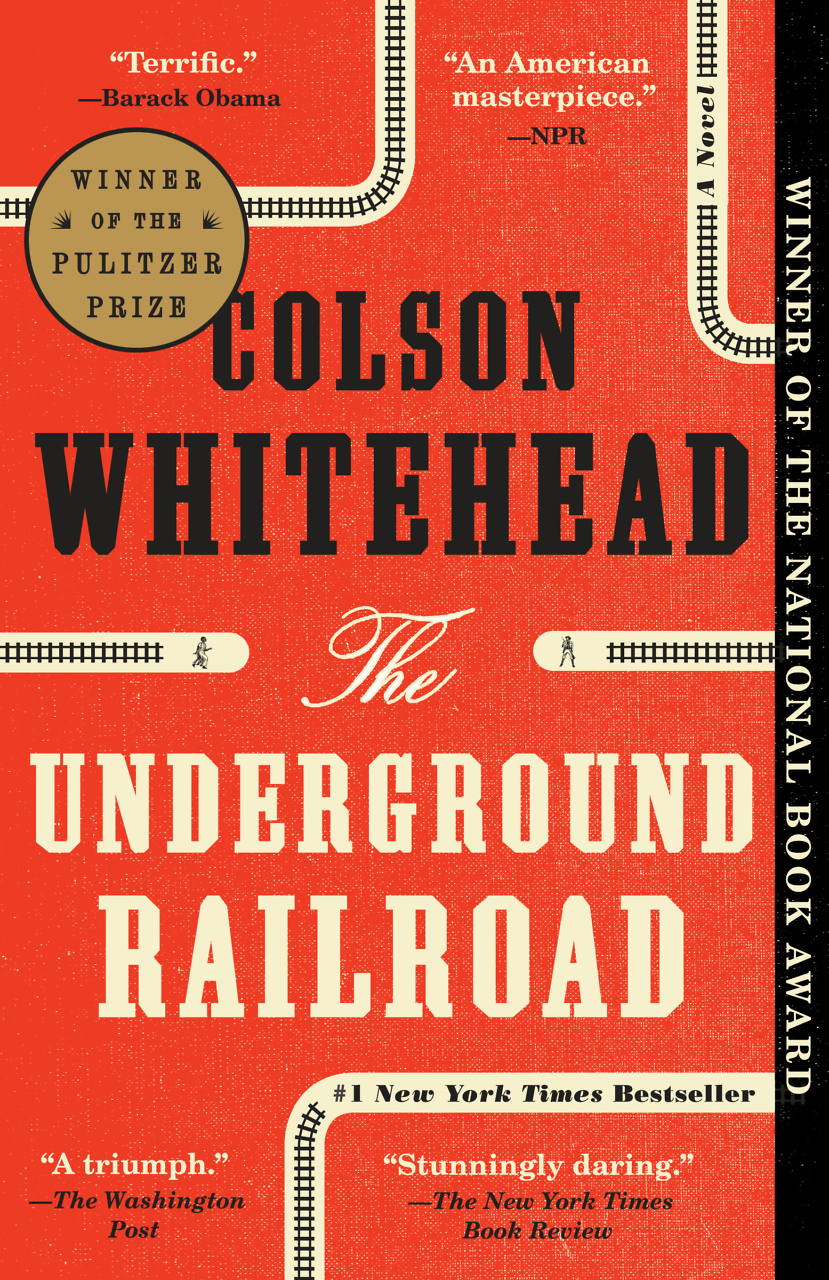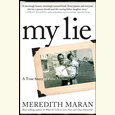Breathing New Life into an Old Story
Shakespearean James Shapiro talks with Chapter 16 about The Year of Lear
 James Shapiro’s The Year of Lear: Shakespeare in 1606 is a brilliant work of scholarship that reads like a novel, and it will forever change the way even aficionados of the Bard think about his life and work. The year Shakespeare wrote King Lear, Macbeth, and Antony and Cleopatra, turned out to be “a good one for Shakespeare and an awful one for England,” Shapiro writes. The Year of Lear explores not only “the cultural fault lines emerging under the new and unfamiliar reign” of King James, but also the rise in Shakespeare’s personal fortunes and the concomitant flowering of his prodigious literary gifts.
James Shapiro’s The Year of Lear: Shakespeare in 1606 is a brilliant work of scholarship that reads like a novel, and it will forever change the way even aficionados of the Bard think about his life and work. The year Shakespeare wrote King Lear, Macbeth, and Antony and Cleopatra, turned out to be “a good one for Shakespeare and an awful one for England,” Shapiro writes. The Year of Lear explores not only “the cultural fault lines emerging under the new and unfamiliar reign” of King James, but also the rise in Shakespeare’s personal fortunes and the concomitant flowering of his prodigious literary gifts.
Prior to his presentation at Rhodes College in Memphis, Shapiro answered questions from Chapter 16 via email:
Chapter 16: I’ve always thought of Shakespeare as an “Elizabethan” writer. But reading The Year of Lear has made me realize that many of his greatest plays (Lear, obviously, but also Macbeth and Antony and Cleopatra, among others) were written during King James’s reign. Why do modern readers tend to see Shakespeare as Elizabethan rather than Jacobean (or some combination of both)? Does it make any difference to a contemporary audience?
Shapiro: We see Shakespeare as an “Elizabethan” because we have been encouraged to do so. Try imagining that wonderful film Shakespeare in Love ending with a cameo of Simon Russell Beale as King James rather than Judi Dench as Queen Elizabeth. King James is invisible in the popular imagination (despite his association with the Bible translation that bears his name). But it makes a huge difference that Shakespeare spent half of his writing career as a King’s Man, patronized by King James himself, and writing during his Stuart regime. Put another way: ask a contemporary novelist if he or she feels that writing under Trump is the same as writing under Obama. The challenges, national preoccupations, and even issues of censorship changed utterly—then, as now.
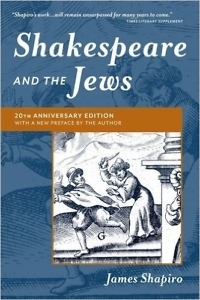 Chapter 16: You point out that Lear evolved from another play (King Leir, published in 1605), with Shakespeare functioning as a “literary architect, performing a gut renovation of the old original, preserving the frame, salvaging bits and pieces, transposing outmoded features in innovative ways.” But what becomes clear, as you juxtapose passages from Leir and Lear, is that Shakespeare’s real genius lay in his ability to add complex emotional and psychological layers to received plots. He always takes a weak play and makes it brilliant. Can you think of any modern cases in which a Shakespeare-like literary “architect” has stepped in and vastly improved a pallid, lifeless original?
Chapter 16: You point out that Lear evolved from another play (King Leir, published in 1605), with Shakespeare functioning as a “literary architect, performing a gut renovation of the old original, preserving the frame, salvaging bits and pieces, transposing outmoded features in innovative ways.” But what becomes clear, as you juxtapose passages from Leir and Lear, is that Shakespeare’s real genius lay in his ability to add complex emotional and psychological layers to received plots. He always takes a weak play and makes it brilliant. Can you think of any modern cases in which a Shakespeare-like literary “architect” has stepped in and vastly improved a pallid, lifeless original?
Shapiro: I don’t want to suggest that the old play King Leir was pallid or lifeless when first staged; rather, that in the ensuing years since its composition, the world had moved on, what audiences cared about changed, and the play had lost its edge. Shakespeare saw that and recognized what was needed to breathe new life into an old and powerful story.
If you are asking me for a modern parallel, I would say the best examples can be found in modern adaptations of Shakespeare’s own plays: rather than reproduce “doublet and hose” productions with an all-male cast in a replica of the Globe, the finest modern productions re-imagine Shakespeare using contemporary technology (such as the current Royal Shakespeare Company production of The Tempest, directed by Gregory Doran, which draws on the wizardry of Intel and Imaginarium Studios) or locate it in new and timely contexts (such as another current staging of The Tempest, directed by Phillida Lloyd, in which Harriet Walter stars as Prospero and which is set in a prison).
Chapter 16: Leir had a happy ending: Lear most certainly does not. “It’s as if a modern remake of The Sound of Music ended with the Von Trapp family carted off to concentration camps,” a friend of mine said after reading your book. Contemporary audiences who went into the theater expecting Leir and got Lear instead must have been utterly poleaxed. Can you talk a bit about what we know of their reaction?
Shapiro: I wish that we knew more about how playgoers in 1606 reacted to any play; unfortunately, no evidence survives for the impact of Shakespeare’s production (other than the fact that it was popular enough to be seen into print in 1608, and only one other Jacobean play by Shakespeare, Pericles, was published during his lifetime, so I take that as a sign of the play’s popularity). I also think that your friend’s analogy is exactly right. I imagine that it must have been devastating. But I have no evidence to back that up, so I must assume that this is so (an assumption given support by the decision of Nahum Tate, who revived King Lear in the Restoration, to restore Leir’s happy ending—a version which then held the stage for a century and a half).
Chapter 16: You describe “A Declaration of Egregious Popish Impostures” by Samuel Harsnett as an enormous influence on Lear: “Scholars have identified more than eighty passages in King Lear that are indebted to Harsnett’s Declaration. Why did Shakespeare find this particular source so linguistically compelling?
Shapiro: That’s a great question but a tough one to answer. What we do know is that Shakespeare was a voracious reader. But why did one source appeal to him more than another? The vocabulary (which is fantastically rich in Harsnett)? The incredible stories (however false) of demonic possession? The fact that King James himself was obsessed with witchcraft and possession? It’s impossible to know. But Lear would not be Lear without Harsnett (or Leir).
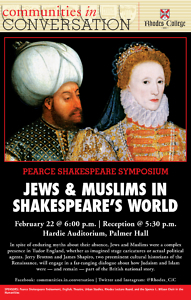 Chapter 16: Must have, might have been, could have, would have, possibly could have occurred—the information we have about Shakespeare’s life is depressingly scant, and scholars often resort to speculation. How do you address, in your own work, the discrepancies between what you know, what you believe, and what you intuit about the life of a hugely famous figure whose real movements have been lost, or at best obscured, to time?
Chapter 16: Must have, might have been, could have, would have, possibly could have occurred—the information we have about Shakespeare’s life is depressingly scant, and scholars often resort to speculation. How do you address, in your own work, the discrepancies between what you know, what you believe, and what you intuit about the life of a hugely famous figure whose real movements have been lost, or at best obscured, to time?
Shapiro: There are things about Shakespeare’s life we want to know about but never will: with whom did he sleep? What were his religious or political beliefs? What were his favorite foods? Did he love his wife? Did he miss living away from his daughters? Who were his friends? Answers to these questions about his personal life and his feelings are lost forever—and it is not only pointless to speculate, but foolish, since biographers tend to project their own likes and dislikes onto Shakespeare.
But there are areas where informed speculation is possible and I think warranted. For example, my book begins with hundreds of privileged playgoers attending a masque at King James’s court. Ben Jonson wrote it, and scholars have noted that it influenced Shakespeare’s The Tempest. Was Shakespeare in the room? I claim that he probably was. I can’t prove it, but given its influence on him, the fact that he was a King’s Man, that members of his company assisted in the masque, and that this was the most extravagant theatrical event of the year make it likely that he was in the room when it happened. But if a document emerges that places him in Stratford-upon-Avon that day I’ll be happy to revise that claim in subsequent printings.
Chapter 16: Why is there such a constant compulsion to prove that Shakespeare is (or is not) Shakespeare?
Shapiro: Because underlying that question is a larger and more consequential set of questions: could somebody who didn’t go to university write these plays? Must they have been written by a Catholic? Or an aristocrat? Or by someone who had been to Italy? Or (as some have argued) the bastard son and lover of Queen Elizabeth? You can’t make this stuff up. I conclude that the compulsion ultimately comes from a refusal to allow for the power of imagination—that is, that somebody could write about Italy without having gone there, or about princes without having been one.
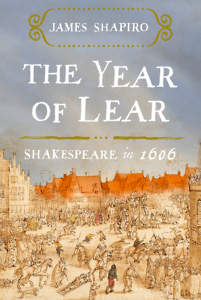 Chapter 16: Your book Contested Will deals with this issue at length, taking readers through what a review in The Guardian called “the pretensions of the Baconians, the Marlovians, the Oxfordians, and on through the latest internet conspiracy theories.” As a scholar, how do you cope with the virulent online propagation of alternative Shakespearean “facts”?
Chapter 16: Your book Contested Will deals with this issue at length, taking readers through what a review in The Guardian called “the pretensions of the Baconians, the Marlovians, the Oxfordians, and on through the latest internet conspiracy theories.” As a scholar, how do you cope with the virulent online propagation of alternative Shakespearean “facts”?
Shapiro: I wrote Contested Will not to change the minds of those who want to deny that William Shakespeare of Stratford upon Avon wrote the plays long attributed to him; they are believers, living in a faith-based world of evidence, immune to facts, and their minds will never change. Rather, I wrote the book because I sensed that the rise of “alternative facts” and conspiracy theories was getting out of hand, and that the so-called “Shakespeare Authorship Controversy” exemplified this problem. The effects of such thinking, as recent political events have made clear, are damaging to democracy and to the pursuit of knowledge. That Supreme Court justices, past and present, are avid Shakespeare deniers—and that is a fact—is a sobering thing to report.

Fernanda Moore has been a contributing writer to Chapter 16 since 2009. From 2013 to 2016, she was the fiction critic for Commentary; her work has also appeared in The New York Times Magazine, Marie Claire, New York, and Southern Living, among others.

